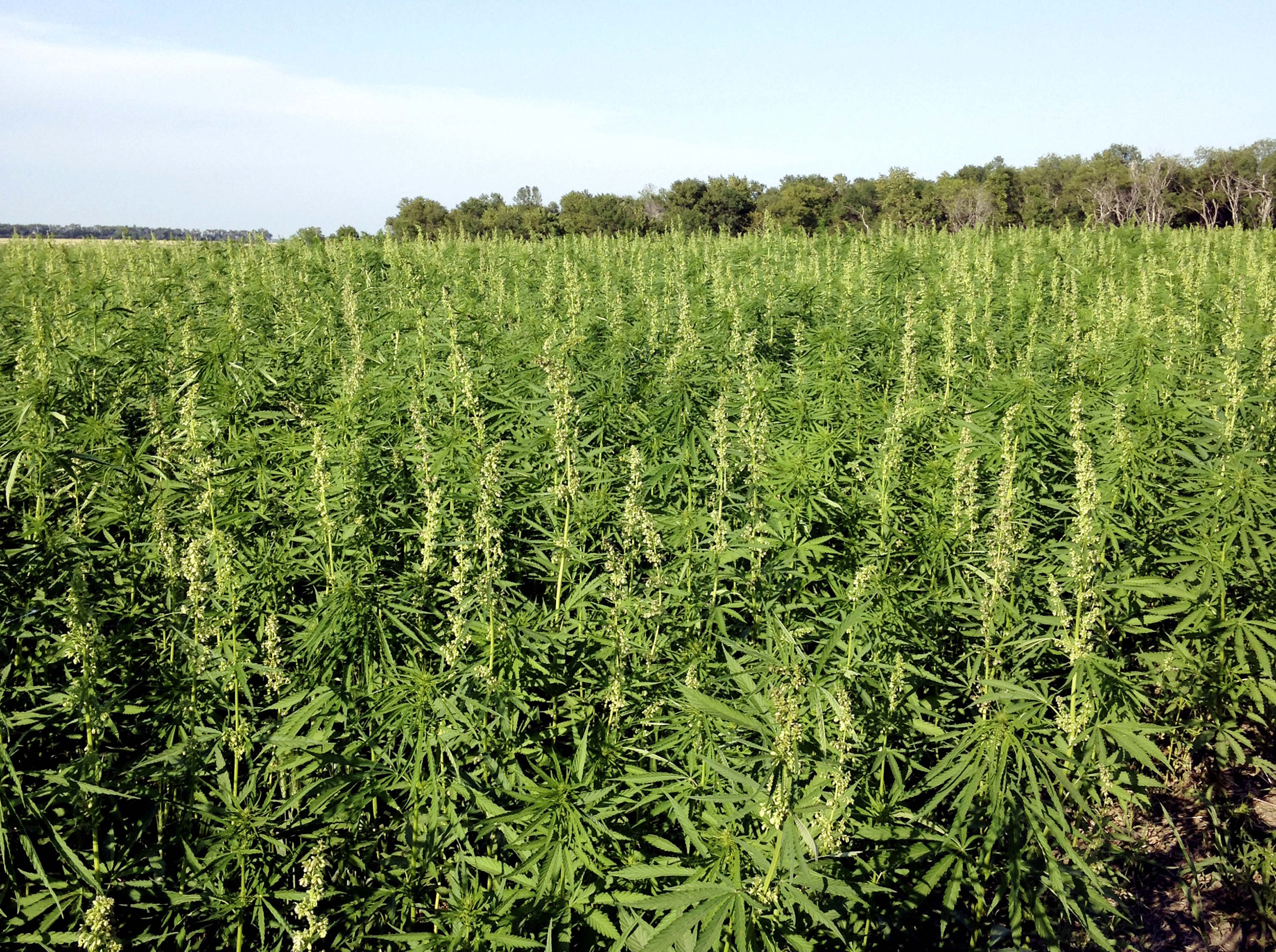South Carolina's farmers are struggling. Hemp could be the help they need.
The seeds of innovation are being planted in the south


A free daily email with the biggest news stories of the day – and the best features from TheWeek.com
You are now subscribed
Your newsletter sign-up was successful
There's a new plant growing in South Carolina's soil. It's tall, green, and has seven leafy points. One would be forgiven for mistaking it for marijuana. But it's not. It's hemp, and it could bring a fresh flow of cash and innovation to the state's farmers.
Hemp is a cousin of marijuana, but they are not the same plant. While they're both varieties of cannabis sativa, hemp contains almost no THC, the stuff in pot that gets users high. As a crop, hemp is relatively low maintenance and has a lot of applications: Its fibers can be used to create strong fabric, or ground up and used as mulch. Its oil can be used in cooking and in moisturizers, or turned into the supplement known as cannabidiol (CBD) oil. Often, its seeds are used in animal feed. In other words, hemp is a versatile plant with a lot of potential. But for years, its cultivation has been banned in the U.S. Now, that's starting to change.
In 2014, Congress passed a bill giving states the power to decide for themselves if they would allow hemp to be grown, and since then, more than 30 states have legalized industrial hemp. Last year, South Carolina became one of them, laying plans for a small pilot program for 2018 with a handful of farmers, all hoping hemp will be a solution to the state's agricultural woes.
The Week
Escape your echo chamber. Get the facts behind the news, plus analysis from multiple perspectives.

Sign up for The Week's Free Newsletters
From our morning news briefing to a weekly Good News Newsletter, get the best of The Week delivered directly to your inbox.
From our morning news briefing to a weekly Good News Newsletter, get the best of The Week delivered directly to your inbox.
"Farmers have been hurting," entrepreneur Jason Eargle told the Charleston City Paper earlier this year. "Our traditional crops here have recently experienced very small profit margins." Plus, farmers are getting older, and the younger generations aren't stepping in to fill their shoes. "South Carolina farmers' average age right now is like 60 years old," Eargle says. "Our younger generations aren't as interested in growing cotton, soybeans, corn, and peanuts."
Is hemp the answer? It could be. In 2016, the U.S. hemp market was estimated to be worth approximately $688 million and that number is expected to surpass $1 billion by 2020, Erica McBride, executive director of the National Hemp Association, told The Week. Hemp-based CBD oil alone was reportedly worth $65 million a few years ago, and is gaining value rapidly.
"Currently the domestic market is dominated by cannabidiol CBD oil producers," says McBride. "Markets will expand for food and fiber as more processing facilities emerge, as well as when new technologies that are being researched are brought to market."
South Carolina's agriculture commissioner, Hugh Weathers, says that before the Hemp Pilot Program even began, he was having conversations with major manufacturers in South Carolina about how hemp-based fiber technology would fit into their futures. He says they could be used in airplane seats at the Boeing facility in Charleston, or to create the fabric that lines the interior roof of cars from the BMW facility in Greenville.
A free daily email with the biggest news stories of the day – and the best features from TheWeek.com
"I believe there is a demonstrated marketplace globally," state Sen. Danny Verdin (R-S.C.), chairman of the state Senate Agriculture and Natural Resources Committee, told The State. "Imagine if we could actually make textiles in our textile mills again.”
But how much the state buys into hemp as a crop will depend on the success of its pilot program, which, right now, is pretty limited. The freshman class of participants is small — just 20 farmers — and each farmer gets a measly 20 acres on which to grow their hemp. Compare that to other states with huge hemp operations: Colorado and Kentucky each grow more than 10,000 acres. South Carolina's farmers also have to jump through a number of hoops if they want to participate, including a background check. Plus, they'll need a hemp processor to turn all that raw crop into various products. That's a bit of a challenge, since there appear to be no industrial processors in the state. But at least one is on the way, and farmers are dreaming big about opening their own.
"Our plan is to open a processing plant by the end of this year we'll be able to extract from what we grow and from others too," says Albert Bueno, a new farmer from Lexington County who is in the pilot program. "One-hundred percent vertical integration is the goal."
There's also the question of how hemp will behave in South Carolina's humid climate. "What are the yields our soil type can produce?" Weathers asks. "Is it better than other states because of our long growing season? And what is the value of their harvest in seed, fiber, or oil? It's going to be a very interesting learning year this one and probably the next."
All of these questions aside, the farmers have a lot of hope in the program. "It takes an interesting breed of people that are willing to do it," says Nat Bradford, a farmer from Sumter County. "To be part of this reacquaintance with this old seed is exciting."
Next year, the Hemp Pilot Program will expand to 40 farmers that can grow up to 40 acres each. "There are 25,000 farmers in South Carolina," says Bradford. "With such a small group of 20 to get this program up and running, we're hoping that all of them stay in it and stick it out and lay the groundwork for next year."
April Blake is a writer and web content editor based in Cayce, South Carolina. Her work can be seen at the Free Times, ExperienceColumbiaSC.com, and on her website. Her hobbies include developing recipes, slow walks around the grocery store, and petting dogs.
-
 The ‘ravenous’ demand for Cornish minerals
The ‘ravenous’ demand for Cornish mineralsUnder the Radar Growing need for critical minerals to power tech has intensified ‘appetite’ for lithium, which could be a ‘huge boon’ for local economy
-
 Why are election experts taking Trump’s midterm threats seriously?
Why are election experts taking Trump’s midterm threats seriously?IN THE SPOTLIGHT As the president muses about polling place deployments and a centralized electoral system aimed at one-party control, lawmakers are taking this administration at its word
-
 ‘Restaurateurs have become millionaires’
‘Restaurateurs have become millionaires’Instant Opinion Opinion, comment and editorials of the day
